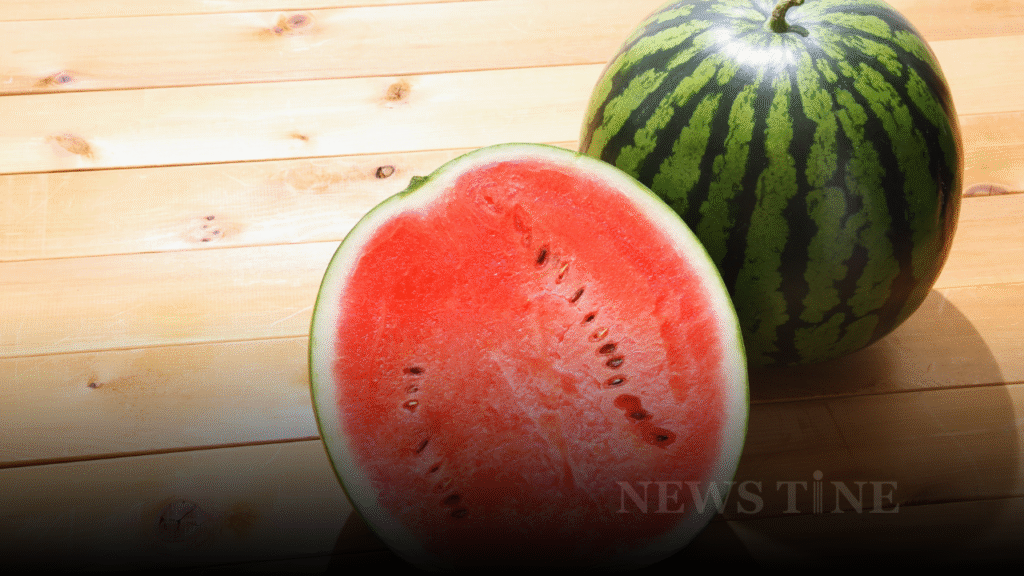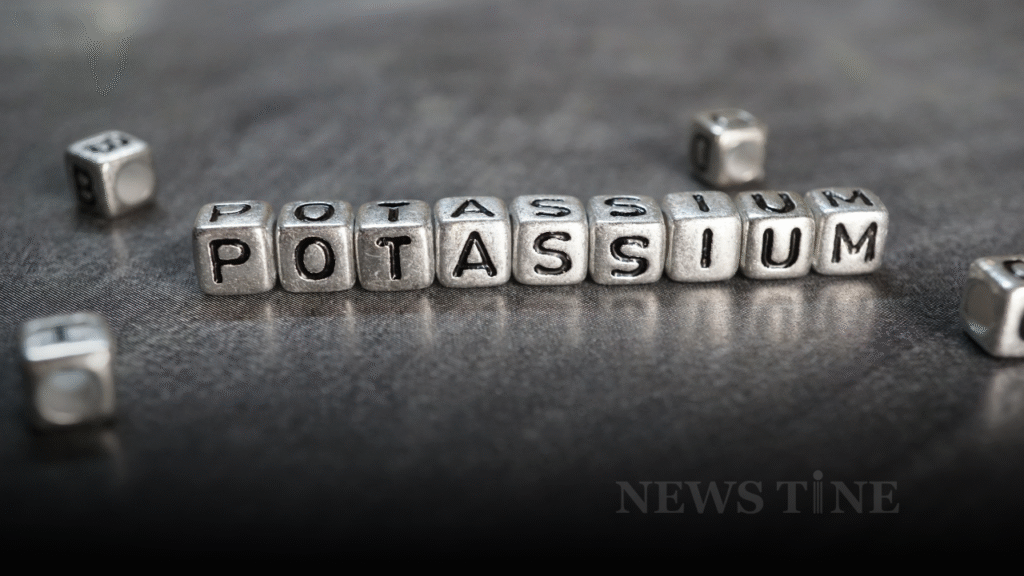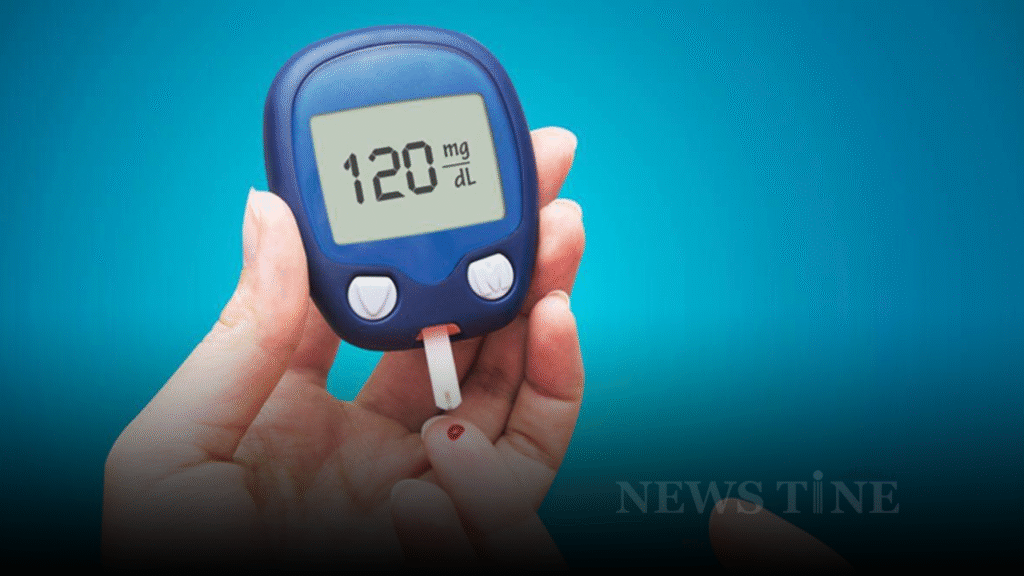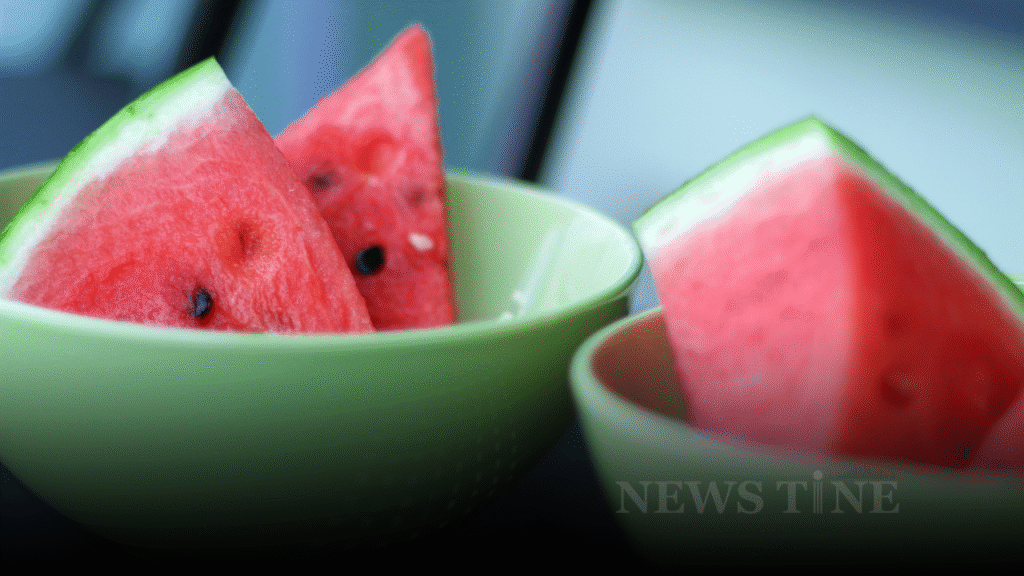
Nothing hits quite like a juicy slice of watermelon on a scorching summer day. It’s sweet, hydrating, and pretty much synonymous with good vibes and picnic blankets. But—brace yourself—there is such a thing as too much of a good thing. As refreshing as it is, eating watermelon every day might come with a few surprising side effects.
Now don’t panic. We’re not saying you need to ban watermelon from your life. But if you’ve been diving into a watermelon a day thinking you’re on the health fast track, it might be time for a little reality check.
Here’s a breakdown of six lesser-known, but important side effects that could come from going overboard with your favorite summer fruit.
Why Watermelon Feels Like the Perfect Fruit
Watermelon is over 90% water, packed with vitamins like A, B6, and C, and contains antioxidants like lycopene. It’s also low in calories and has zero fat. So it’s easy to see why so many people make it their go-to snack during hot weather.
But when we get into the habit of eating watermelon daily—and in large amounts—it can throw some unexpected curveballs at our health.
1. Digestive Distress from Fructose Overload

Watermelon is naturally high in fructose, a type of sugar that can be tough on your digestive system—especially if you have irritable bowel syndrome (IBS) or are sensitive to certain carbs (FODMAPs).
Common digestive symptoms include:
- Bloating
- Diarrhea
- Constipation
- Gas
- Stomach cramps
💡 Expert tip: According to the International Foundation for Gastrointestinal Disorders, people with IBS should limit high-fructose fruits like watermelon to small portions—about one cup at a time.
2. Potassium Overload Can Be Risky

While bananas are famous for potassium, watermelon packs a solid punch too—about 170 mg per cup.
Potassium helps regulate your heartbeat and nerve function. But too much potassium (a condition called hyperkalemia) can be dangerous.
Possible symptoms of potassium overload:
- Irregular heart rhythm
- Muscle weakness
- Nausea
- Paralysis in extreme cases
📊 Fact: The recommended daily intake of potassium is around 2,600–3,400 mg for adults, depending on age and sex. Eating watermelon alongside other potassium-rich foods can quickly add up.
3. Unexpected Blood Sugar Spikes

Despite its water content, watermelon has a relatively high glycemic index (GI) of 74–80. That means it can spike your blood sugar quickly, even if its glycemic load (overall sugar content) is moderate.
This is particularly concerning for people with:
- Type 2 diabetes
- Prediabetes
- Insulin resistance
🩺 Quote: “Even natural sugars can be problematic when consumed in large amounts,” says Dr. Lila Jameson, a nutritionist and diabetes educator.
4. Possible Allergic Reactions

Believe it or not, some people are allergic to watermelon—especially those sensitive to ragweed or grass pollen.
Symptoms of watermelon allergy:
- Itchy mouth or throat
- Hives
- Swelling of the lips, tongue, or throat
- Anaphylaxis (in rare, severe cases)
🌿 Realistic insight: This is known as oral allergy syndrome, and it often intensifies during pollen season.
5. Headaches or Migraines from Tyramine

Watermelon contains an amino acid called tyramine, which has been linked to migraine headaches in some individuals.
🧠 In a study of 3,960 migraine sufferers, watermelon was among the top fruits that triggered headaches within 30 minutes of consumption.
👉 If you’re prone to migraines, try reducing or tracking your watermelon intake and see if there’s a pattern.
6. Orange Skin? Yes, It’s Real: Lycopenemia

Eat way too much watermelon (or tomatoes, for that matter), and your skin might start to take on an orange hue. This condition is called lycopenemia, caused by high levels of lycopene.
🟠 It’s not dangerous—but it’s definitely awkward.
✅ Lycopenemia usually clears up once you cut back on lycopene-rich foods.
So, How Much Watermelon is Actually Safe?

Moderation is the key to enjoying all the goodness of watermelon without worrying about the side effects.
Recommended daily intake: 1.5 to 2 cups (about 280–350 grams).
Portion Control Table
| Serving Size | Fructose (g) | Potassium (mg) | Glycemic Index |
|---|---|---|---|
| 1 cup | 9.4 g | 170 mg | 74–80 |
| 2 cups | 18.8 g | 340 mg | 74–80 |
Don’t Ditch It, Just Dial It Back
Watermelon isn’t evil. In fact, it’s still one of the best fruits to munch on when you’re craving something sweet and refreshing. The key is mindfulness—know how much you’re eating, and how often. So next time you’re tempted to eat half a watermelon in one sitting (we’ve all been there), remember: everything’s good in moderation. 🍉






